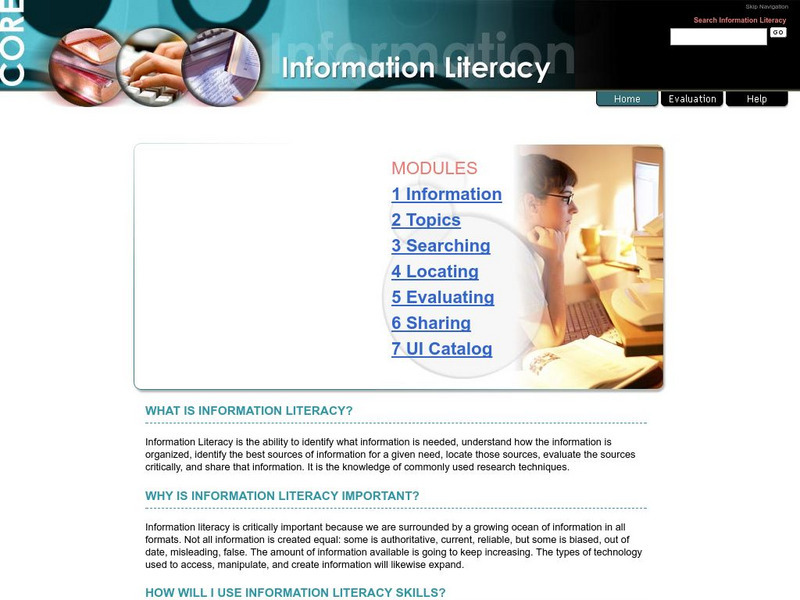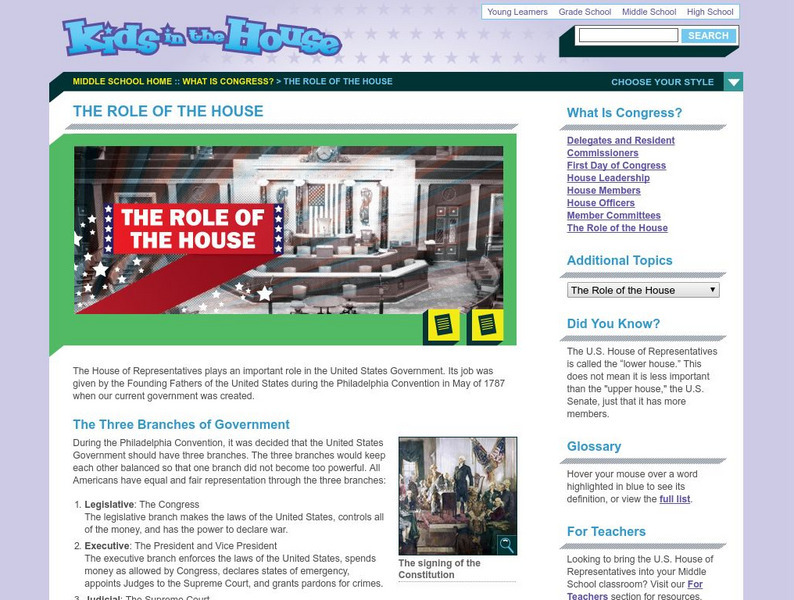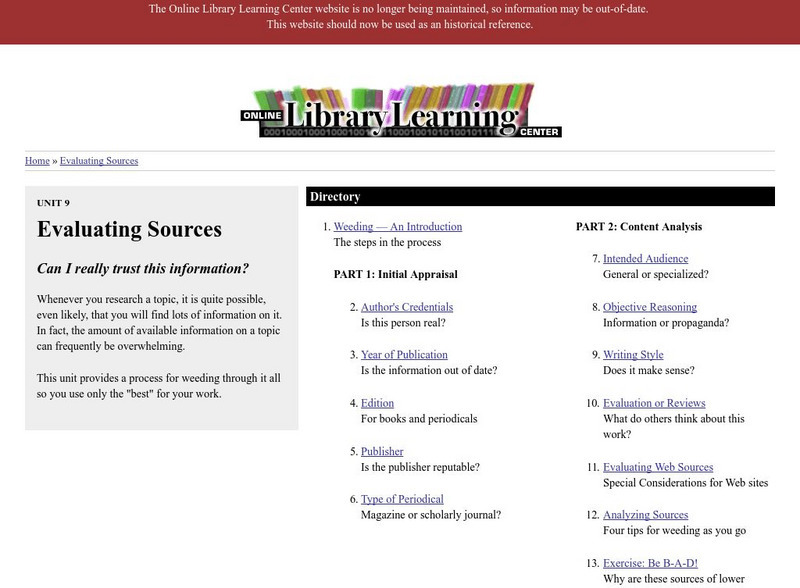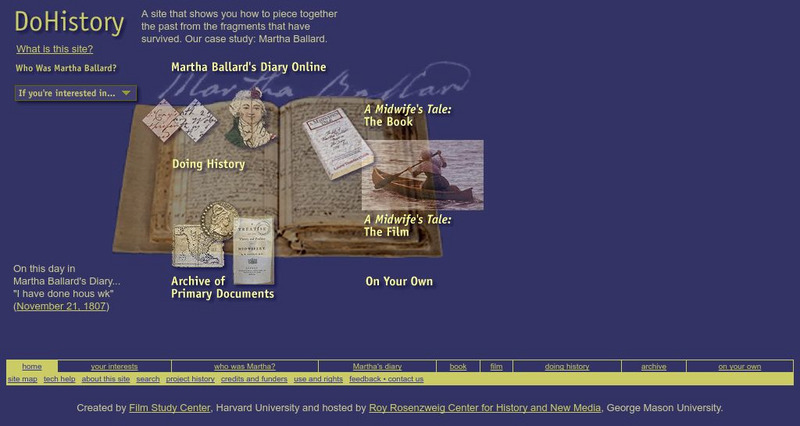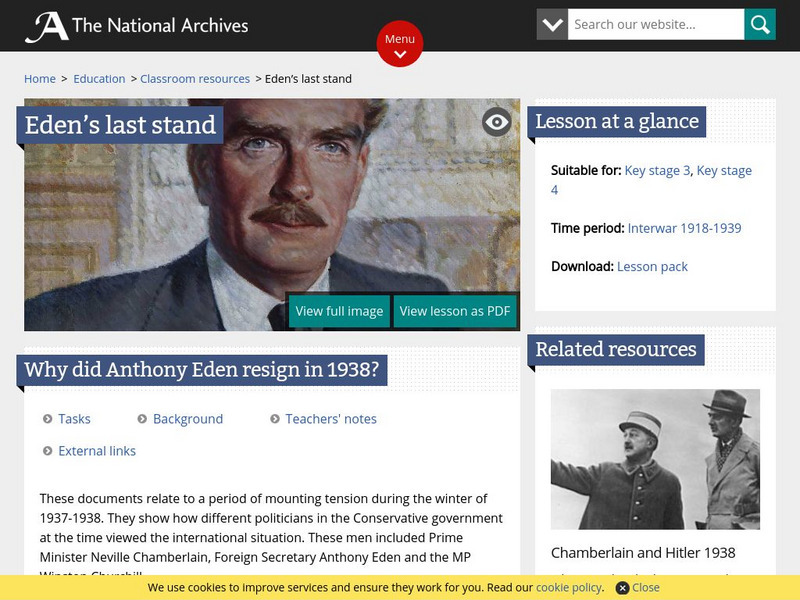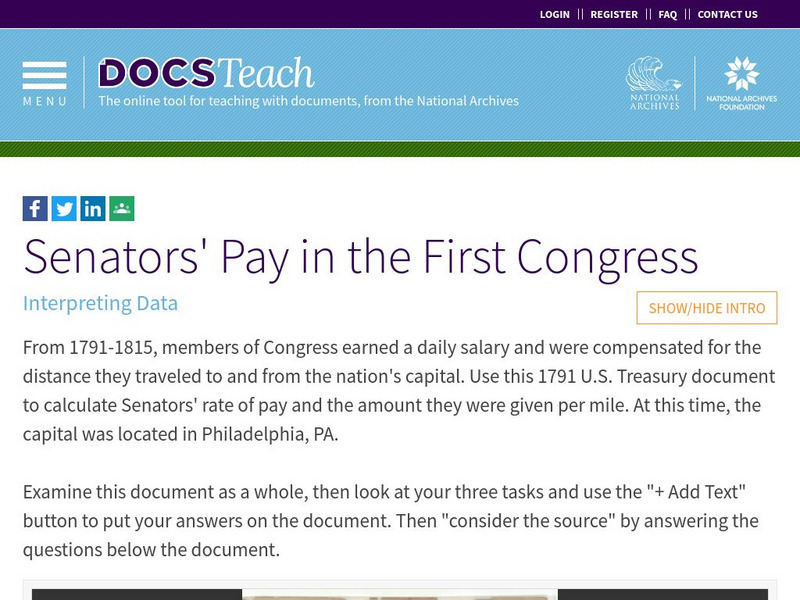Other
Us Congress: Congress, the Court, and the Constitution
Transcript of a congressional hearing, held in 1994, to discuss whether Congress had given too much power to the Supreme Court, against the express intent of the Founding Fathers. This transcript is lengthy but informative, containing...
Other
Minnesota Historical Society: Minnesota Communities: Lesson: Primary Sources
Lesson plan with necessary documents attached in PDF format where young scholars read three eye-witness accounts of a car accident and compare them to the secondary source insurance report. Then students read three eye-witness accounts...
Other
University of Idaho: Information Literacy
This learning module focuses on Information Literacy including internet basics, locating, evaluating, sharing, and documenting information.
New York Times
New York Times: Times Machine
Browse PDFs of all issues of the "New York Times" now in the public domain. Includes every edition of the paper published since September 18, 1851, when the paper's first issue was produced, through 1922.
Grammarly
Grammarly Handbook: Research and Documentation
An explanation of the importance of research and documentation and links to specific information for each.
Grammarly
Grammarly Handbook: Good or Bad Resource?
This page focuses on how to evaluate resources; it establishes criteria for determining good and bad resources. Primary resources are always good, but secondary and tertiary ones need to be evaluated more closely.
ReadWriteThink
Read Write Think: Double Entry Journal
A printable double-entry journal page along with directions on how to use this type of graphic organize, as well as lists of teaching ideas and related resources.
New Zealand Ministry of Education
Nz Ministry of Education: Extra! Extra!
In this instructional activity students will learn about newspapers including the parts of a newspaper, purpose, and structure of articles. They will gather, record and present information from a variety of sources, using different...
US Government Publishing Office
Ben's Guide to u.s. Government: The Articles of Confederation, 1781
Gives a nice history of the Articles and also a summary of what they were and the problems that developed with their adoption. Includes links to the actual document.
US Government Publishing Office
Ben's Guide to u.s. Government: Our Government
Cartoon Ben Franklin guides students through the U.S. government by providing short descriptions of the legislative, executive, and judicial branches.
US Government Publishing Office
U.s. Government Publishing Office: History of Bills
For any legislative actions enacted upon a specific bill, the specific type of action is recorded in the History of Bills section of the Government Printing Office website. This information comes straight from the Congressional Record,...
US House of Representatives
Office of the Clerk: What Is Congress?
This overview will acquaint the reader with the role of the House of Representatives in Congress. Included is a glossary of terms and ideas for the teacher.
US Government Publishing Office
U.s. Government Publishing Office: Congressional Bills
The government directory for making current and past bills accessible to the public. Very useful for finding bills pertinent to classes. Will require teacher direction at the elementary levels.
US Government Publishing Office
Ben's Guide to u.s. Government: Learning Adventures: Branches of Government
Beginning page of a Learning Adventure examines what parts of the Constitution give the branches of the Federal Government their specific powers. Those three parts are Article I, Article II, and Article III.
Other
Usa Gov: Three Branches of Government
Lesson plans for students to learn about the three branches of government. They can find information about the origins of the Constitution, separation of powers, and details about each of the three branches.
Other
Online Library Learning Center: Evaluating Sources
Use this "Weed and feed," approach to get only the best resources for your research project.
Other
Do History: Using Primary Sources
This site explains the difference between a primary and secondary source. It also provides students with questions to ask when gathering evidence about a primary source document.
Library and Archives Canada
Nlc: Defining Primary and Secondary Sources
Libraries and archives hold documents and books that can be used for your research projects. Learn how to divide and identify them into primary and secondary sources in this tutorial.
National Archives (UK)
National Archives Learning Curve: How to Read a Document
This site is a lesson on Document Analysis using a letter written by Anthony Eden to PM Chamberlain in late 1937.
US Government Publishing Office
Ben's Guide to u.s. Government: Branch O Mania
Learn about the duties of each branch of government with this learning game. Help Ben Franklin catch the items that are unique jobs for each particular branch of government. Level up with your knowledge!
Cornell University
Cornell University: Law School: Articles and Amendments
This resource gives a table of the Articles and Amendments of the United States Constitution.
US National Archives
Docsteach: Senators' Pay in the First Congress
In this activity, students will analyze a primary source document to find relevant historical data and calculate how much United States Senators were paid in the first Federal Congress.
US National Archives
Docsteach: The Legislative Process: Congress at Work
Students will analyze historical records of the House and Senate to understand the sequence of steps in the legislative process. The students will work collaboratively to study documents and identify the step in the process that each...
US National Archives
Docsteach: The Constitution in Action: Article Ii (Lab Team 3)
In this activity students will analyze the Senate Journal of the First Congress and identify how the document demonstrates content contained within Article II of the Constitution in action.




